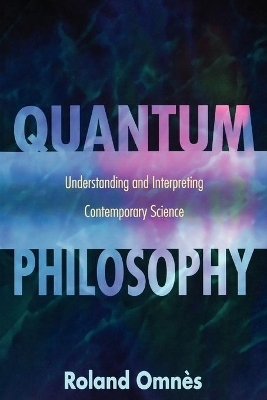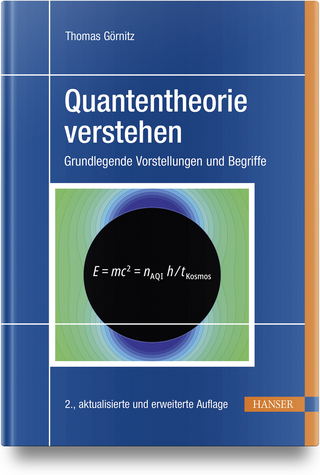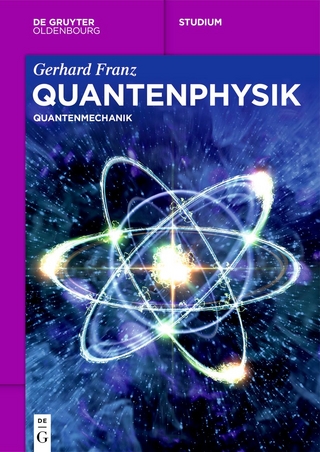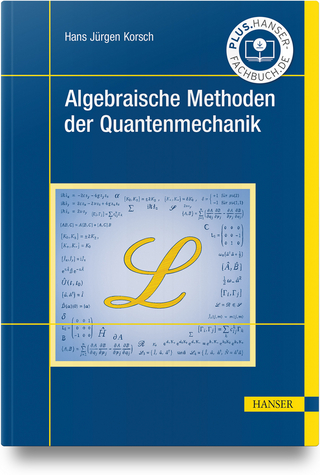
Quantum Philosophy
Princeton University Press (Verlag)
978-0-691-09551-6 (ISBN)
- Lieferbar (Termin unbekannt)
- Versandkostenfrei
- Auch auf Rechnung
- Artikel merken
In this magisterial work, Roland Omnes takes us from the academies of ancient Greece to the laboratories of modern science as he seeks to do no less than rebuild the foundations of the philosophy of knowledge. One of the world's leading quantum physicists, Omnes reviews the history and recent development of mathematics, logic, and the physical sciences to show that current work in quantum theory offers new answers to questions that have puzzled philosophers for centuries: Is the world ultimately intelligible? Are all events caused? Do objects have definitive locations? Omnes addresses these profound questions with vigorous arguments and clear, colorful writing, aiming not just to advance scholarship but to enlighten readers with no background in science or philosophy. The book opens with an insightful and sweeping account of the main developments in science and the philosophy of knowledge from the pre-Socratic era to the nineteenth century. Omnes then traces the emergence in modern thought of a fracture between our intuitive, commonsense views of the world and the abstract and--for most people--incomprehensible world portrayed by advanced physics, math, and logic.
He argues that the fracture appeared because the insights of Einstein and Bohr, the logical advances of Frege, Russell, and Godel, and the necessary mathematics of infinity of Cantor and Hilbert cannot be fully expressed by words or images only. Quantum mechanics played an important role in this development, as it seemed to undermine intuitive notions of intelligibility, locality, and causality. However, Omnes argues that common sense and quantum mechanics are not as incompatible as many have thought. In fact, he makes the provocative argument that the "consistent-histories" approach to quantum mechanics, developed over the past fifteen years, places common sense (slightly reappraised and circumscribed) on a firm scientific and philosophical footing for the first time. In doing so, it provides what philosophers have sought through the ages: a sure foundation for human knowledge. Quantum Philosophy is a profound work of contemporary science and philosophy and an eloquent history of the long struggle to understand the nature of the world and of knowledge itself.
Roland Omnes is Professor Emeritus of Physics at the University of Paris-Sud. His books include Understanding Quantum Mechanics and The Interpretation of Quantum Mechanics (both Princeton).
PrefaceAcknowledgmentsPreludePt. 1The Legacy1Ch. IClassical Logic6Ch. IIClassical Physics23Ch. IIIClassical Mathematics47Ch. IVClassical Philosophy of Knowledge62Pt. 2The Fracture79Ch. VFormal Mathematics84Ch. VIThe Philosophy of Mathematics108Ch. VIIFormal Physics124Ch. VIIIThe Epistemology of Physics147Pt. 3From Formal Back to Visual: The Quantum Case159Ch. IXBetween Logic and Physics163Ch. XRediscovering Common Sense184Ch. XIFrom the Measurable to the Unmeasurable196Ch. XIIOn Realism216Pt. 4State of the Question and Perspectives235Ch. XIIIA New Beginning237Ch. XIVWhat Is Science?246Ch. XVMethod255Ch. XVIVanishing Perspectives269Glossary283Name Index291Subject Index295
| Erscheint lt. Verlag | 17.3.2002 |
|---|---|
| Übersetzer | Arturo Sangalli |
| Zusatzinfo | 3 line illus. |
| Verlagsort | New Jersey |
| Sprache | englisch |
| Maße | 152 x 235 mm |
| Gewicht | 454 g |
| Themenwelt | Geisteswissenschaften ► Philosophie |
| Naturwissenschaften ► Physik / Astronomie ► Quantenphysik | |
| ISBN-10 | 0-691-09551-5 / 0691095515 |
| ISBN-13 | 978-0-691-09551-6 / 9780691095516 |
| Zustand | Neuware |
| Haben Sie eine Frage zum Produkt? |
aus dem Bereich


